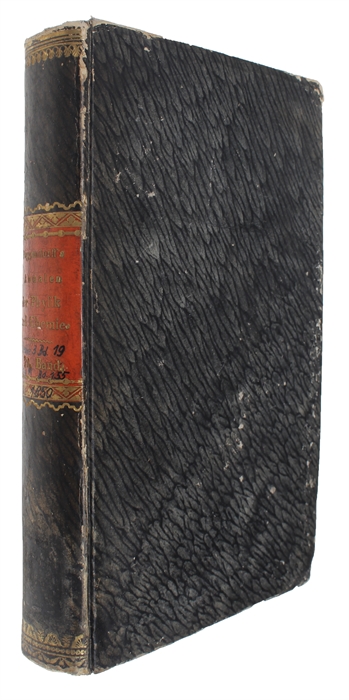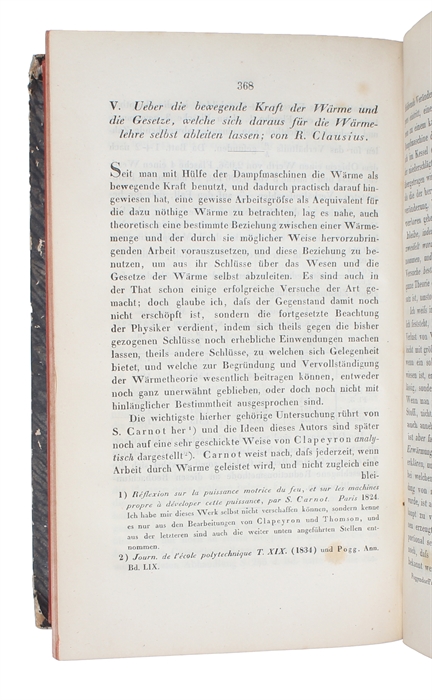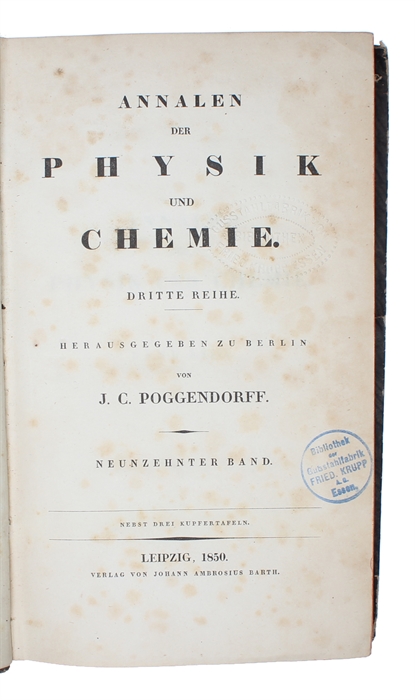CLAUSIUS, RUDOLF. - INTRODUCING THE SECOND LAW OF THERMODYNAMICS.
Ueber die bewegende Kraft der Wärme und die Gesetze, welche sich daraus für die Wärmelehre selbst ableiten lassen.
Leipzig, Johann Ambrosius Barth, 1850. Contemp. marbled boards. Gilt spine, titlelabel with gilt lettering. Light wear to spineends, corners and edges. Stamps on title-page (Gusstahlfabrik Fried. Krupp). In "Annalen der Physik und Chemie", Dritte Reihe, 19. Band (79. Band der ganzen Reihe). IX,(1),580 pp. and 3 folded engraved plates. (Entire volume offered). Endpapers and the first and last few leaves with brownspots. Clausius's paper: pp. 368-397 a. pp. 500-524. Internally clean.
First edition of this monumental, famous paper in thermodynamics in which Clausius for the first time states the Second Law of Thermodynamics, one of the most importent laws of Nature having a huge impact on the development of physical theory, cosmology, communications and information theory. The law states that a) the energy of the Universe is constant, and b) the Entropy of the Universe tends to a maximum.
"Clausius' contribution to thermostatics is comparable to those of Newton and Maxwell to mechanics and electromagnetism, respectively. In the obituary J.W. Gibbs remarked that Clausiu's first memoir "marks an epoch in the history of physics....."" (Chowdhury and Stauffer in "Principles of Equilibrium Statistical Mechanics").
In "The Nature of the Physical World" Eddington writes: "The Law that entropy increases - the Second Law of Thermodynamics - holds, I think, the supreme position among the laws of Nature. If someone points out to you that your pet theory of the Universe is in disagreement with Maxwell's equations - then so much the worse for Maxwell's equations. If it is found to be contradicted by observation - well, these experimentalists do bungle things sometimes. But if your theory is found to be against the Second Law of Thermodynamics I can give You no hope; there is nothing for it but to collapse in deepest humiliation.".
Parkinson "Breakthroughs", 1850 P.
Order-nr.: 53436



